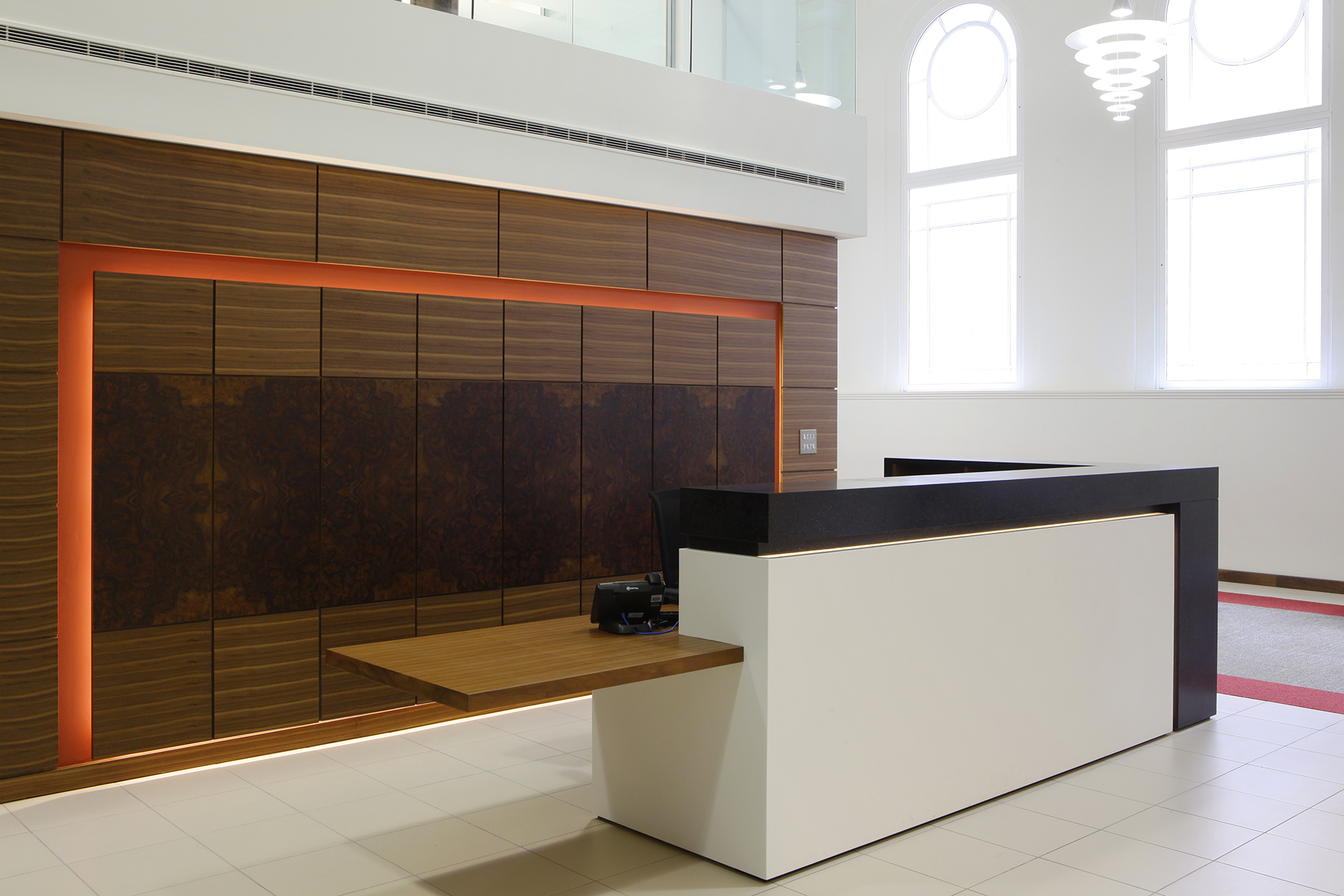33, Great Charles Street
33, Great Charles Street was Birmingham's former stock exchange and is a grade II listed building completed in 1928.
The 35,000 sq ft building, which is in a conservation zone, was in use continuously as a subsidiary of the London Stock Exchange until the Big Bang of 1987 resulted in the traditional dealing floor being replaced with new technology. Its function was to raise capital through joint stock issue for manufacturers, mineral extractors and railway companies.
The building was bought by Birmingham-based developer Stoford Developments Ltd. The existing tenant EFG Harris Allday Private Bank made a commitment to a new 15 year lease and remained in the building during the eight month refurbishment programme.
The Brief:
The Objective of the project was to restore a historic building within a Conservation Area and create a dynamic office space for 350 employees.
The project had a number of challenges foremost was undertaking a refurbishment of a building while still occupied by a firm of Stockbrokers where any interruptions to the power or IT would have had very adverse consequences.
Refurbishing a historic building within Conservation Area and ensuring that the former dealing floor and committee rooms were fitted out sensitively.
“Throughout the design stage it became clear that Thuja Design understood the sensitive nature of the building renewal, designing a space that both met our needs as developer and reflecting the culture and brand identity of EFG Harris Allday. It's BCO shortlist in the refurbished / recycled workplace category simply confirms the success of the scheme.”
Dominic Stokes, Managing Director
Stoford Developments
The results:
Thuja Design were appointed by Stoford Developments to design and coordinate the CAT A refurbishment and retained by EFG Harris Allday to deliver a CAT B scheme similar in standard of quality and design to their headquarters in London but with a limited budget.
The former dealing hall was at the centre piece of the redevelopment and was converted into a reception area and suite of meeting rooms, the introduction of a mezzanine doubled the capacity. Many of the existing historical features were retained and where they had been disturbed by previous refurbishments were reinstated.
The remaining five floors of office space were refurbished to a high standard with all mechanical and electrical services replaced to a 'Grade A' standard. The same standards of respectful restoration applied whilst incorporating contemporary joinery, floor finishes and fittings.
The committee and board rooms timber panelling were restored along with existing furniture and fixing and artwork reinstated after a extended period of repair.

The building was shortlisted for a BCO award for refurbished offices.
The sympathetic transformation of a unique slice of Birmingham's history has been uplifting and the judges felt that the project team and the client must take enormous satisfaction from delivering clear objectives within a tight budget. The restorative nature and delivery of the project clearly differentiates the building in what is a highly competitive regional office market.
BCO Awards 2011 - Judging Panel Comments